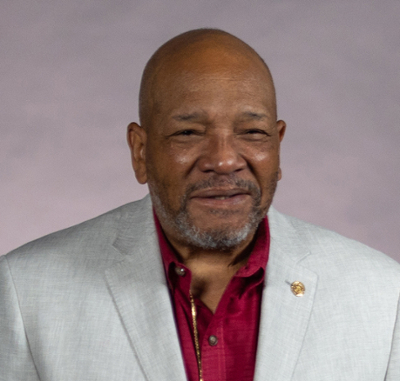
Miami's Juneteenth 'Teach-in': a Q-and-A with Professor Rodney Coates
Interview by Margo Kissell, university news and communications
On Saturday, the nation will commemorate Juneteenth, the 155th anniversary of the emancipation of Blacks from slavery in the United States. It is always celebrated on June 19 (the name combines the words June and nineteenth.)

Rodney Coates
Rodney Coates, a professor of critical race and ethnic studies in the department of global and intercultural studies at Miami University, will give a pre-recorded webinar lecture at 2 p.m. Friday, June 18, about the importance of Juneteenth in American history. (Register here.)
The lecture is free and available to all. Immediately following, Coates will host a question-and-answer session for the Miami community from 3:15 p.m. to 4 p.m.
We touched base with Coates, a public sociologist, for this Q-and-A.
Tell me about the Juneteenth ‘Teach-in.’
On Saturday, we shall celebrate yet another Juneteenth here in America. A celebration of what many consider the final end of slavery to Blacks in this country. This celebration, coming some two and a half years after the signing of the Emancipation Proclamation, was accomplished as federal troops arrived in Galveston, Texas in 1865.
But as with all historical events, this one is filled with ironies and paradoxes, hopes dashed and dreams unfulfilled. This event to many represents the duplicity of power, the cruelty of complacency and the willingness of many to forestall, deny and ignore the plight of the slave.
Consequently, as I will argue in this talk, the so-called freedom of the slave was a check that continually has come back marked insufficient funds. They were offered the premise of a promise yet unfulfilled.
Why should Juneteenth be important to Americans regardless of race?
Juneteenth is American history. It is not Black history.
When did you first learn about Juneteenth?
As a child from my grandfather, who was a direct descendant of slaves. I was 6 or 7. He was a sharecropper from Mississippi. He fled the South to avoid lynchings and arrived in East St. Louis just in time for the race riot (1917). I discuss much of this in the teach-in.
Is there a key message you want participants to take away from the teach-in?
Juneteenth is a bittersweet celebration — one whose promises of freedom are yet being pursued. The history of that pursuit takes us through some of our nation's brightest moments as we came together to write laws, elect diverse legislatures and proudly built towns, schools and lives.
It is also a history of our worst moments — filled with lynching, massacres and hatred. As we explore the past, we must remember that our history came from choices made.
As we move forward, our choices will determine if the future finally fulfills the promise of what Juneteenth and freedom can and still may mean for us as a nation. That future is neither black or white, but red, white and blue. It is American.
Do you do anything special to mark Juneteenth each year?
Read, pray, and celebrate the past struggles of my people. We celebrate by pursuing the freedoms that were promised, by working to ensure that all, regardless of birth, have access to the full set of freedoms America holds out. It is a day of activism as well as celebration.
